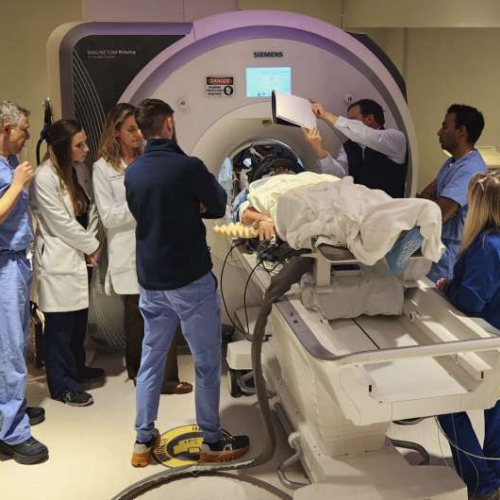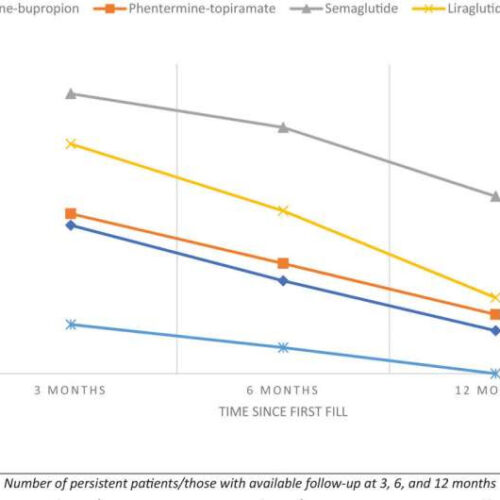by Eurac Research Eccher, terraXcube technician, in one of the climatic chambers in which the experiments on human perception take place. Credit: Eurac Research/Andrea De GiovanniAn experiment conducted by Laura Battistel involved the use of four temperature-controlled climate chambers, ranging from 23 to 25 degrees Celsius. Twenty-six participants were involved: 13 men and 13 women....
Tag: <span>study</span>
Learning a second language strengthens neural connections in the language network, study shows
by Max Planck Society MRI image of neuronal pathways involved in language learning on the computer. Credit: MPI CBSScientists at the Max Planck Institute for Human Cognitive and Brain Sciences in Leipzig have unearthed fascinating evidence that the brain undergoes important changes in wiring when we embark on the journey of learning a new language in...
Study provides first direct evidence explaining why we sleep
By Paul McClure A new study has provided the first direct evidence to explain the function of sleep Depositphotos Researchers have combined physics and biology in a study that provides the first direct evidence explaining why we sleep. Viewing the brain like a biological computer whose resources are drained during waking, they demonstrated that sleep resets...
Major Study Identifies 15 Factors Linked to Early Dementia Risk
ByDAVID NIELDFading brain (Naeblys/iStock/Getty Images Plus)While dementia is much more common in older adults, hundreds of thousands of people are diagnosed with young-onset dementia (YOD) each year – and an extensive new study sheds some considerable new light on why. Most previous research in this area has looked at genetics passed down through generations, but...
Eating Late Can Change How You Burn Calories And Store Fat, Depressing Study Shows
By DAVID NIELD (Hd1photography/iStock/Getty Images Plus)A study suggests eating later in the day can directly impact our biological weight regulation in three key ways: through the number of calories that we burn; our hunger levels; and the way our bodies store fat. With obesity now affecting hundreds of millions of people worldwide, this is a...
Alzheimer’s drugs might get into the brain faster with new ultrasound tool, study shows
by Lauran Neergaard In this photo provided by the WVU Rockefeller Neuroscience Institute, an Alzheimer’s patient undergoes focused ultrasound treatment with the WVU RNI team in Morgantown, W.Va., on Oct. 17, 2023. Scientists have found a way to help Alzheimer’s drugs seep inside the brain faster — by temporarily breaching its protective shield. Credit: Victor...
The study of dreams: Scientists uncover new communication channels with dreamers
by Başak Türker and Delphine Oudiette, The Conversation Credit: Ron Lach from PexelsIn his sci-fi film “Inception,” (2010), Christopher Nolan imagined his protagonist slipping into other people’s dreams and even shaping their contents. But what if this story wasn’t so far away from real life? Our research suggests that it is possible to interact with volunteers...
Hidden Hearing Loss’ May Cause Tinnitus: Study
Ralph Ellis Scientists know that tinnitus, or ringing in the ears, affects 10% of adults worldwide. But they’re not exactly sure what causes the condition. The traditional belief is that tinnitus happens in people who had already lost hearing. But some people who have tinnitus are still able to perform well on standard hearing tests,...
Patients can interrupt immune-suppressing medicines to boost immunity provided by COVID-19 booster, finds study
by University of Nottingham Credit: Unsplash/CC0 Public Domain A major clinical trial, led by experts at the University of Nottingham, has shown that people with inflammatory conditions are able to improve the antibody response from a COVID-19 booster vaccination by interrupting their treatment for two weeks immediately after having the vaccine. The antibody response to the...
Study identifies factors associated with long-term use of FDA-approved anti-obesity medications
by Cleveland Clinic Percentage of patients who were persistent with antiobesity medication (AOM) at early stage, medium term, and long term, by AOM agent. [Color figure can be viewed at wileyonlinelibrary.com] A Cleveland Clinic study looked at the long-term use of anti-obesity medications and found that only 19% of the study participants continued to use the...







